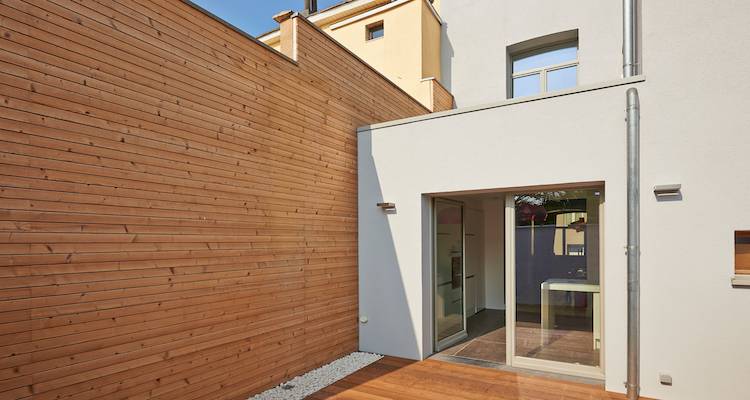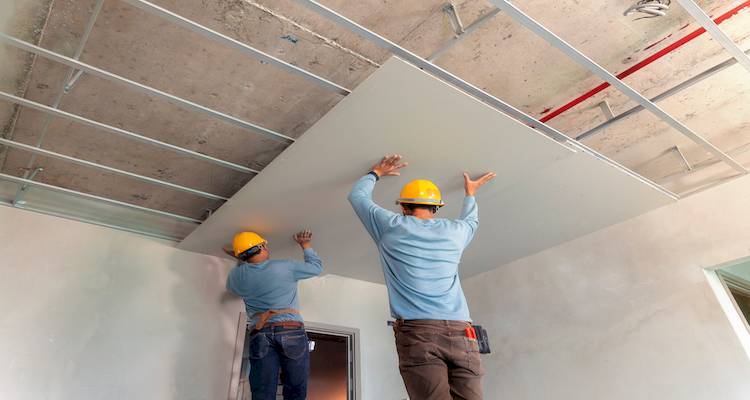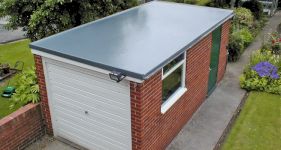Resealing Windows and Doors Costs
- The average cost of resealing windows and doors is £110
- It will take about 1-2 hours to complete
- A complete pricing breakdown, which includes different window sizes and door types.
- How long the job should approximately take and a general overview of what kind of jobs can be performed.
- How to find a local tradesperson.
Does your door and window sealant need replacing?
We've produced this guide to help you work out the price of certain types of sealant and know the differences between them, such as window silicone.
The overall cost depends on how many windows and doors need resealing and their size.
Read on to discover every detail on how to reseal windows and doors.

£110
Table of Contents
- How Much Does It Cost To Reseal Windows and Doors?
- Additional Costs
- Labour Costs and Timescales
- Cost Factors of Resealing Windows and Doors
- What's Involved in Resealing Windows and Doors?
- Can I Reseal Windows and Doors Myself?
- Types of Sealer
- Cost of Removing Windows and Doors Sealer
- How Often Should You Reseal Windows and Doors?
- Benefits of Resealing Windows and Doors
- Hiring Someone to Reseal Windows and Doors Checklist
- FAQs
How Much Does It Cost To Reseal Windows and Doors?
Window and door resealing prices start from £80-£160 for the first window or door, then £25-£70 per additional unit in the same visit. Materials are relatively affordable at £5-£12 for silicone, with door gaskets typically costing £12-£40 for a full set, so you don't need to worry about breaking the budget on materials alone.
Resealing your windows and doors regularly is a great way to keep your long-term costs down. If you haven't ever had your windows or doors resealed, you may want to think about getting it done.
Window and door resealing cost is affected by several factors, as this is a common job needed in many homes, particularly older homes that show wear over time. The average cost depends mostly on how many units need work, though comparing new front door costs may be worthwhile for older doors.
If you are not sure whether your windows and doors need to be resealed, there are several signs that you can look out for including how it looks visually, if you can feel draughts coming through from your windows or doors, or if you notice condensation forming on the inside of your windows. When windows and doors aren't sealed properly, cold air enters and warm air escapes, leading to higher energy costs.
Window and Door Resealing Prices
| Job Description | Duration | Total Costs |
|---|---|---|
| Resealing window unit 610 x 1010mm | 0.5-1 hours | £80–£112 |
| Resealing window unit 1190 x 1010mm | 1-1.5 hours | £85-£117 |
| Resealing window unit 1770 x 1160mm | 1.5-2 hours | £90–£1222 |
| UPVC door seal replacement (standard size) | 1-2 hours | £102–£160 |
Additional Costs
Some additional costs may arise when it comes to resealing your windows and doors. Below is a list of some of the costs that you may need to consider when resealing windows and doors:
- Fitting new windows - £3000-£4000
- Window sill replacement - £175
- Replacing blown window - £60-£80
- Replacing front door - £400-£600
Labour Costs and Timescales
The overall cost for labour can vary depending on several factors including the size of the window, the number of doors or windows that need to be replaced, and the location of your property.
Depending on the size of the window or door, the average cost for the labour of having your windows and doors resealed will fall somewhere between £75-£120 per window or door. A small window costs around £75-£100 for labour whereas a large window costs around £85-£110 and a standard-sized door costs around £90-£120.
The more window and doors that need resealing, the longer the job is going to take overall and, therefore, the more you can expect to pay for the cost of labour.
Cost Factors of Resealing Windows and Doors
Some cost factors may affect the cost of having your windows or doors resealed. These can include factors such as the number of doors or windows that need to be resealed, the size of the windows or doors, and the location of your property.
Below is a list of the main things that affect the resealing doors cost and resealing windows cost.
Number of Doors or Windows
The number of doors or windows that need to be resealed can make a big difference in the total cost of the job. The more windows and doors that need to be resealed, the longer the job is going to take in total and therefore, the more you can expect to pay in labour.
The material costs for each window is around £5-£12 on average, and £12-£40 for each door. The more windows or doors that need to be resealed, the more you can expect to spend on the materials to do so.

Size of Doors or Windows
The size of the doors or windows that you are resealing can affect the overall cost of the job. The larger the windows or doors, the more you can expect to pay. You will need more materials for larger windows or doors, and the job will also take longer, so this will result in higher costs.
Location of Property
The location of your property can also affect the cost of having your windows resealed. Those located in the London area can expect to pay around 20% more for the cost of labour per window or door than those located in the north or other areas of the UK.
What's Involved in Resealing Windows and Doors?
To replace the silicone seal around your windows, your contractor will need to find the right sealant for the job at hand.
A silicone sealant is the best type as it is watertight and resistant to temperature changes due to its elasticity. This makes it an incredibly durable material.
There are many different colours of sealant, so it's easy for professionals to find one that matches up with your doors and windows. Your contractor will also need to use a sealant or caulk gun to apply the sealant.
Firstly, your tradesperson will need to clear the old sealant away from the edges of the windows and doors. Sealing over an old seal will make the new seal more prone to damage quicker than usual, and it will leave the newly sealed edges looking uneven.

After your contractor has cleared away the old sealant, they'll be sure to clean the edges so that there is no dust or debris present.
Once they have completed this, it's then time for your professional to start applying the new sealant using the caulk gun.
Your contractor will make sure to apply the sealant in single long strokes. They'll avoid stop-starting too much in the process as this can leave the sealant susceptible to tearing. A professional technique to smooth out the sealant is to dip a finger in a little bit of water and then run it all the way along the groove to smooth it out.
Can I Reseal Windows and Doors Myself?
Resealing windows or doors is quite a simple job, especially if you are only replacing the seal around the frame. However, if there is a lot of damage to the seal or the frame, then you should definitely call in a window specialist to take a look at the job at hand.
You may also want to avoid taking on this job yourself if you have double-glazing windows and the damaged seal has compromised the gap that exists between those two panes of glass. This allows moisture to enter and build up inside your double glazing. Any repairs like this should be left to the professionals.
Types of Sealer
There are a number of different sealant types available to buy, but which one is best for you? Below is a list of the different sealant types and the pros and cons of each of these different types.
Silicone
Silicone is the most commonly used sealant because it is so adaptable and durable.
Pros
- ✔ Durable
- ✔ Withstands temperature changes
- ✔ Waterproof
Cons
- ✖ Can be difficult to apply
- ✖ Can have a bad smell
Latex
Latex sealant can last an extremely long time and can be painted so works well no matter what the designs of your windows and doors.
Pros
- ✔ Can be painted
- ✔ Lasts a long time
- ✔ Can be used to fill in small gaps
Cons
- ✖ Does not withstand temperature changes well
Butyl Rubber
Butyl rubber sealant is perfect for filling in larger gaps and cracks.
Pros
- ✔ Perfect for using outside
- ✔ Can fill in large cracks
Cons
- ✖ May be bulky for indoor use
Oil-Based Asphalt
Oil-based asphalt is the most heavy-duty sealant available.
Pros
- ✔ Very durable
- ✔ Can be used for large jobs
Cons
- ✖ Very thick
- ✖ Dries very quickly
Cost of Removing Windows and Doors Sealer
If the sealant around your windows or doors is becoming old, faulty, or beginning to break apart, then you should think about removing it and replacing it with new sealant.
Removing sealant can be done as a DIY job in most cases as it is simply a case of pulling it away from the edges where it sits.
If you would prefer to hire a contractor to remove your sealant for you, this will cost somewhere around £60-£100. The cost may vary depending on how many windows and doors you would like the sealant to be removed from.
A simple one-window sealant removal shouldn’t take any more than an hour. Usually, it can be completed in a lot less.
How Often Should You Reseal Windows and Doors?
Windows should be resealed whenever you start noticing problems arising. You should check all of your window and door sealants periodically to ensure that they are still working their best and that there are no noticeable tears, loose parts, or issues with the quality.
It is also thought that roughly every five years is a good time to have your windows and doors resealed. This ensures that the sealant stays functional and prevents further problems down the line. This can also help to optimize your energy bill costs.
Benefits of Resealing Windows and Doors
There are a number of benefits to resealing windows and doors. Below is a list of the main benefits when it comes to keeping on top of resealing your windows and doors:
Energy Efficiency
Resealing your windows and doors increases the energy efficiency of your home. This means that your energy bills will be lower, and this could save you a lot of money in the long run. An energy-efficient home is also much better for the planet.

Stops Draughts
If you can feel a lot of draughts around the home, then it’s probably time to reseal your windows and doors. In doing so, you can create a new airtight seal which will fix those draughts.
Eliminates Condensation
Resealing your windows and doors eliminates condensation that forms as a result of the air passing through the gaps. If condensation is left untreated, it can leave homes feeling very cold and in extreme cases can eventually lead to damp and mould.
Hiring Someone to Reseal Windows and Doors Checklist
There are a number of things that you may need to consider when it comes to hiring someone to reseal your windows and doors. Below is a list of all of the things that you should think about before making a decision on the right person to take on the job:
- Be sure to get the quote in writing so that you know exactly what you can expect to pay once the sealant installation is complete
- Always obtain at least three separate quotes for the job so that you can ensure you’re getting a good price
- Ask for a breakdown of costs on the quotes so that you can be certain that you’re getting a good price for each different element of the job
- For any payments you make, always get a receipt
- Ask around for recommendations on good contractors in your local area
- Find out what materials the contractor will be using for their work – you don’t want to skimp out on quality to save a bit of money upfront. This may result in you having to spend more on repairs in the future, or you may end up having to get your sealant replaced much sooner than if you were to use high-quality materials
- Find out how much experience the contractor has in resealing windows and doors
FAQs
What can you use to reseal windows?
How much sealant do I need?
Can double-glazed windows be resealed?
What is the best type of sealant?
How can you tell if your sealant needs to be replaced?
- If there are draughts coming through
- If there is noticeable wear or damage on the sealant
- If there is mould on the sealant
- If you notice condensation
- If it has been more than five years since it was last resealed










